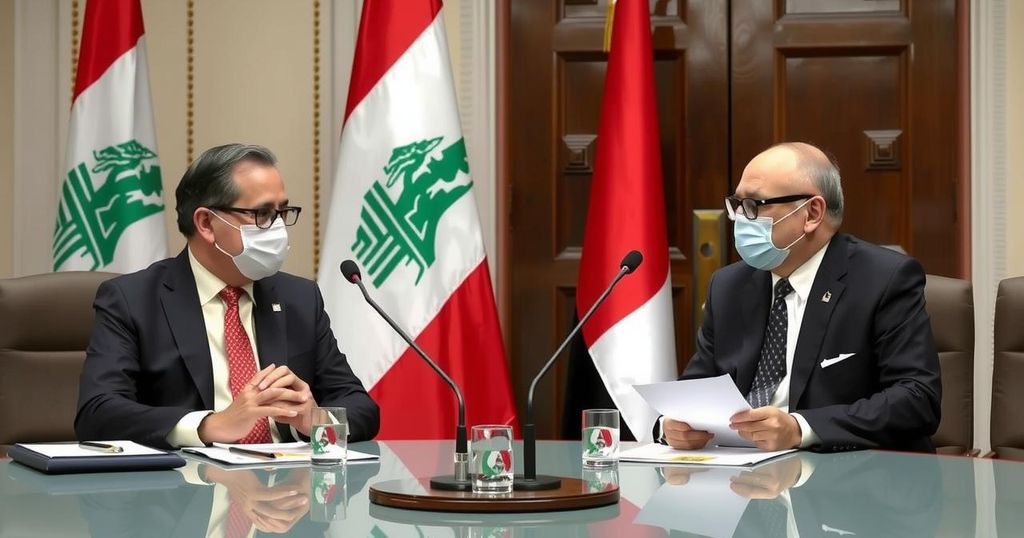Egypt and Lebanon Discuss Presidential Election Ahead of Critical Session

Egypt’s Foreign Minister Badr Abdelatty and Lebanese Foreign Minister Abdullah Bou Habib spoke about Lebanon’s political situation and the upcoming presidential election scheduled for January 9, 2025. They emphasized the need for national consensus without external influences and discussed the implications of the ongoing situation in Syria.
On January 5, 2025, Egyptian Foreign Minister Badr Abdelatty engaged in a phone conversation with Lebanese Foreign Minister Abdullah Bou Habib to discuss current political developments in Lebanon ahead of the parliamentary session set for January 9 to elect a new president. Abdelatty highlighted the importance of domestic collaboration among Lebanese factions to reach a consensus for ending the presidential void without outside influences. The ministers also deliberated on the political and security landscape in Syria, asserting the importance of the Syrian people’s will, state integrity, and achieving a political transition under Syrian sovereignty without external imposition.
Lebanon has been without a president since October 2022 after the term of Michel Aoun ended, marking an extended political vacuum in a nation constrained by sectarian power-sharing arrangements, as stipulated by the National Pact. This arrangement designates the presidency to a Maronite Christian, the prime minister to a Sunni Muslim, and the parliament speaker to a Shia Muslim, maintaining a delicate balance among sectarian interests. The imminent parliamentary session comes after a ceasefire agreement between Israel and Hezbollah, which has seen significant loss of life and displacement within Lebanon. Recent conflicts have left approximately 4,000 dead and one million displaced according to local records.
In the context of Lebanon’s ongoing political crisis, the absence of a president has stymied governance since October 2022. The Lebanese parliament is preparing for a critical session to elect a successor, underscoring the urgency of resolving the vacancy amid external pressures. The delicate sectarian agreements that characterize Lebanese governance complicate political consensus, as parties must navigate the complex interplay of communal representation. Additionally, the regional backdrop includes a fragile ceasefire following prolonged hostilities with Israel, which has exacerbated the humanitarian situation within the country.
The discussions between the Egyptian and Lebanese foreign ministers reflect ongoing regional efforts to bolster Lebanon’s internal cohesion and political stability. With the Lebanese parliament’s election session looming, the emphasis remains on fostering an indigenous solution to the presidency while mitigating external interference. As entities grapple with a severe political vacuum and the aftermath of conflict, regional players like Egypt play a pivotal role in advocating for national dialogue and stability.
Original Source: www.egypttoday.com







